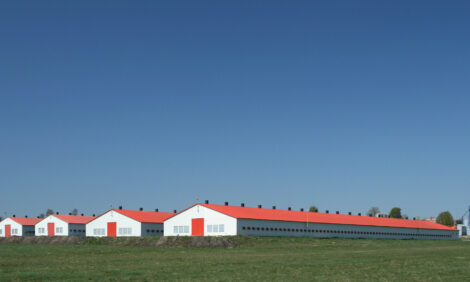



Insect producers call for EU food hygiene standards and tailored-best practices
Gathered in Copenhagen for the Workshop on "Good Hygiene Practices in insect production" and the IPIFF General Assembly, the International Platform of Insects for Food and FeedIPIFF - the European umbrella organisation representing the interests of the insect production sector for food and feed – has reaffirmed the need to establish EU food hygiene standards for the insect sector, while fostering transparent communication along the food and feed chain.
On the 27 May 2019, IPIFF and DIN (the Danish Insect Network) have jointly organised a workshop which aimed at presenting the IPIFF Guide on Good Hygiene Practices, as a tool to support the implementation of EU food & feed safety legislation by insect producers. Participants from across the European Union, but also from the United States, Israel and Switzerland, have explored possible avenues for fostering cooperation between operators throughout the food and feed chain. In addition, the debates have also focused on the main research gaps, needed to be filled in order to broaden the regulatory options for using insects as food or feed at EU level.
Introducing the event, Thor Gunnar Kofoed (Vice President of the Danish Agriculture & Food Council and Chair of the Copa-Cogeca Working Party on "seeds") said: "The European farming sector is looking for new protein sources to overcome the current protein deficit in the European Union. We do therefore welcome the emergence of the insect sector, as it can bring innovative and valuable solutions for the European livestock while providing an economically sound opportunity for farmers".
Presenting the IPIFF Guide on Good Hygiene Practices, Mr Lars-Henrik Lau Heckmann (IPIFF Executive Committee Member and Head of Section - Insect & Protein Technology at DTI) explained that "this document’s goal is to assist insect producers to market safe products, in accordance with the general objectives of the food and feed hygiene legislation." Being currently evaluated by the EU Members States in view of its endorsement, the document will be updated accordingly. Although this publication represents the work of IPIFF and its members, the association welcomes feedback from interested stakeholders.
Mr Finn Vestergaard Povlsen (Quality Manager at DLG, Member of the FEFAC Feed Safety Management Committee) explained that such a Guide is essential to support the insect sector in establishing risk management safety risks and foster transparent communication among feed chain partners. "This document is a key milestone towards consolidating relationships with the insect sector", said the FEFAC delegate.
On the 28 May, during the IPIFF General Assembly, the members of the Brussels-based association reiterated the need for EU policymakers to step up actions on the topic of substrates suitable for insect farming. The very same subject has also been discussed during the Workshop, when participants underlined the need to prioritise research on matters related to insect farming. Such measures are necessary in order to substantiate future EU legislative developments, notably on the high circularity potential of the European insect sector.
Introducing the meeting, Mr Antoine Hubert - IPIFF President - indicated: "we are confident that the European institutions will soon move ahead with the authorisation of insects in poultry feed. Concurrently, investigations on the use of new substrates as feed for insects remains a key priority for our members".
Several research projects analysing the potential use of new substrates, notably former foodstuffs containing meat or fish, have been developed. Other initiatives evaluating the potential of other substrates, such as food losses from restaurants or catering firms, are underway. "As soon as the science-based evidence is complete, the European Food Safety Authority (EFSA) can deliver its conclusions in order to pave the way for EU regulatory changes in these areas".
In the wake of the ongoing EU deliberations on the revision of the EU food hygiene legislation (Regulation (EC) No 853/2004), foreseen to include specific standards for insects as food, the IPIFF President also emphasised the need to complement the existing EU regulatory framework on insects as food: "the establishment of such EU hygiene requirements is crucial for our sector - we need to facilitate the uniform application of the EU general legislation, while also ensuring that non-EU insect producers willing to place goods on the European market are subject to equivalent rules as those applied by European insect producers".









